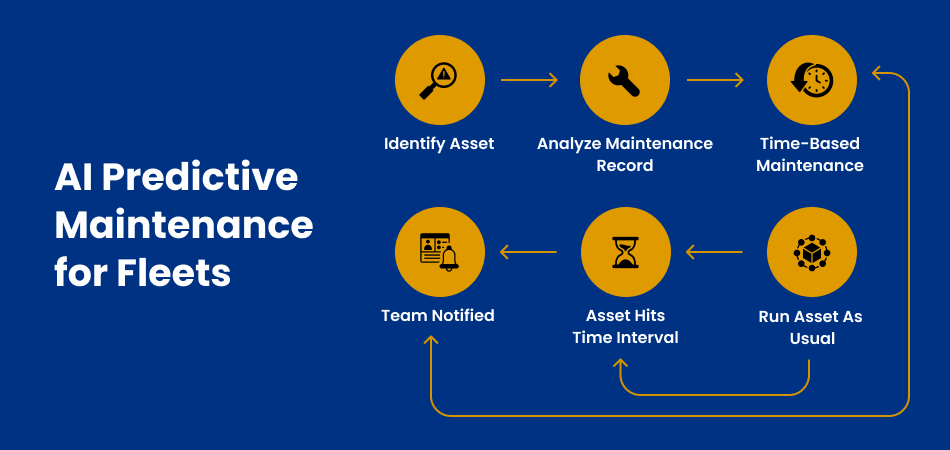To remain competitive in the ever changing digital landscape of today, organizations are always looking for reliable and scalable solutions.One of the most reliable frameworks for developing such solutions is Microsoft’s .NET. Whether you are planning to develop a web application, a mobile app, or an enterprise-grade software solution, .NET provides the necessary tools and libraries to meet your needs. However, the key to a successful .NET project lies in choosing the right development partner. With numerous .NET development companies available globally, selecting the right one can be daunting. This comprehensive guide will walk you through the critical steps and considerations to help you choose the best .NET development company for your next project.
Why You Should Hire a .NET Development Company
.NET is a versatile framework that requires specialized skills and expertise to leverage its full potential. Hiring a .NET development company brings numerous benefits that can significantly impact the success of your project. These companies offer a wealth of experience, technical expertise, and a structured approach that individual freelancers or in-house teams might lack.
Advantages of Hiring a .NET Development Company
To illustrate the benefits of hiring a .NET development company, let’s look at the advantages in a tabular form:
| Advantage | Description |
| Expertise | Access to experienced developers with deep knowledge of the .NET framework. |
| Efficiency | Streamlined development processes and use of best practices to ensure timely delivery. |
| Scalability | The capacity to scale the team up or down in accordance with project needs. |
| Support and Maintenance | Ongoing support and maintenance services post-deployment to ensure the application runs smoothly. |
| Cost-Effectiveness | Potentially lower costs compared to hiring and training an in-house team. |
| Access to Latest Technologies | Companies often stay updated with the latest .NET advancements and incorporate them into your project. |
| Quality Assurance | Dedicated QA teams to ensure the final product is of high quality and free of critical bugs. |
| Comprehensive Services | Full-cycle services from consultation, development, testing, deployment, to support and maintenance. |
| Risk Mitigation | Established companies have risk management strategies to handle project uncertainties and challenges effectively. |
| Focus on Core Business | Outsourcing allows you to focus on your core business activities while the development company handles the technical aspects of the project. |
Steps to Choosing the Right Development Partner for Your Project
Choosing the right .NET development company involves several critical steps. Each step is designed to ensure that the partner you select aligns with your project goals and can deliver the desired results.
Identify Your Project Requirements
The first step in selecting the right .NET development company is to clearly define your project requirements. This involves understanding the scope, objectives, target audience, and the specific features and functionalities you need in your application. There are some of the key aspects to take:
Project Scope: Determine the overall scope of your project, including the type of application (web, mobile, desktop), the platforms it will run on, and the expected user base.
- Objectives: Define the primary goals of your project. Are you looking to improve internal processes, provide a new service to customers, or enter a new market?
- Target Audience: Identify your target audience and their needs. Understanding your users will help in designing a user-friendly and engaging application.
- Features and Functionalities: List the core features and functionalities you expect from the application. This could include user authentication, data analytics, third-party integrations, etc.
- Budget and Timeline: There should be a proper budget and timeline of your project. This will help in evaluating proposals and ensuring that the development company can meet your financial and time constraints.
Explore Outsourcing Services
Outsourcing .NET development can offer several advantages, such as cost savings, access to a global talent pool, and flexibility in scaling the team. When considering outsourcing, it’s important to:
- Evaluate the Pros and Cons of Outsourcing: Understand the benefits and potential challenges of outsourcing compared to in-house development. Benefits include cost savings, access to specialized skills, and reduced management overhead. Challenges might include communication barriers and time zone differences.
- Research Potential Outsourcing Destinations: Look for regions with skilled .NET developers and favorable business conditions. Popular outsourcing destinations include India, Eastern Europe, and South America.
- Assess the Outsourcing Company’s Alignment with Your Goals: Ensure that the outsourcing company understands and aligns with your business goals and project requirements. This involves evaluating their communication practices, cultural fit, and commitment to your project’s success.
Evaluating the Company’s Experience and Capabilities
The experience and capabilities of a .NET development company are crucial indicators of their ability to deliver quality solutions. There are some key factors to evaluate:
- Portfolio and Case Studies: Review the company’s portfolio and case studies to understand their past projects and expertise in .NET development. You should compare complexity and scope with the identical projects.
- Client Testimonials and References: Check client testimonials and ask for references to gauge client satisfaction and the company’s reputation. Speaking directly with past clients can provide valuable insights into the company’s strengths and weaknesses.
- Technical Skills and Certifications: Ensure the company’s developers possess the necessary technical skills and certifications in .NET technologies. Certifications from Microsoft, for example, can indicate a high level of expertise.
- Development Methodologies: Understand the company’s development methodologies, such as Agile or Scrum, to ensure they align with your project management preferences. Agile methodologies, for instance, can offer flexibility and iterative development, which is beneficial for complex projects.
- Communication and Collaboration: Evaluate the company’s communication practices and collaboration tools to ensure seamless interaction throughout the project lifecycle. Effective communication is essential for project success, especially in an outsourcing scenario.
Determine Company Pricing and Payment Policies
Understanding the pricing structure and payment policies of a .NET development company is critical to avoid any financial surprises. Here are some aspects to consider:
- Pricing Models: Identify the pricing models offered by the company, such as fixed-price, time and material, or dedicated team models, and choose the one that best suits your project requirements. Each model has its pros and cons, and the choice depends on the project’s complexity and scope.
- Cost Transparency: Ensure that the company provides a transparent breakdown of costs, including development, testing, deployment, and post-launch support. This transparency helps in budgeting and prevents unexpected expenses.
- Payment Terms: Clarify the payment terms, such as upfront payments, milestone-based payments, or monthly payments, and ensure they align with your budget and financial planning. Milestone-based payments can be particularly effective in managing cash flow and ensuring progress.
- Additional Costs: Inquire about any potential additional costs, such as licensing fees, third-party integrations, or maintenance charges, to avoid unexpected expenses. Knowing these costs upfront helps in making an informed decision.
Make Your Final Decision
After thoroughly evaluating potential .NET development companies, it’s time to make your final decision. Here are some final steps to help you choose the right partner:
- Compare Proposals: Compare the proposals received from different companies based on their technical expertise, pricing, timelines, and overall fit with your project requirements. Look for the proposal that offers the best balance of cost, quality, and timeline.
- Conduct Interviews: Conduct interviews with the shortlisted companies to assess their communication skills, responsiveness, and cultural fit with your team. The interview process can reveal how well the company understands your project and how they plan to address your needs.
- Pilot Project: Consider starting with a pilot project or a small task to evaluate the company’s performance, quality of work, and ability to meet deadlines. A pilot project can serve as a test run and provide a clearer picture of what to expect.
- Sign a Contract: Once you’ve selected the right development partner, ensure all project details, timelines, deliverables, and payment terms are clearly documented in a formal contract. A well-defined contract protects both parties and sets clear expectations.
Conclusion
Choosing the right .NET development company is a critical decision that can significantly impact the success of your software project. By following the steps outlined in this guide—identifying your project requirements, opting for outsourcing services, evaluating the company’s experience and capabilities, understanding their pricing and payment policies, and carefully making your final decision—you can ensure a successful collaboration and achieve your project goals. Take the time to conduct thorough research and due diligence, and you’ll find a reliable .NET development partner who can bring your vision to life. Remember, the right partner is not just a service provider but a collaborator who can add value to your project and contribute to your long-term success.



